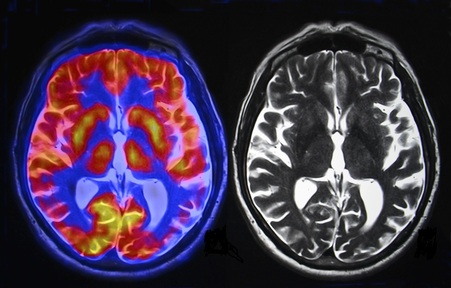Dementia discovery means millions with Alzheimer's could have been misdiagnosed
A clinical trial has discovered a new type of dementia and has revealed that millions of people may have been misdiagnosed as having Alzheimer's Disease - which shares similar features but is distinctly different.

The study, published in the medical journal, Brain, states that Limbic-predominant age-related TDP-43 encephalopathy, or LATE, shares similar symptoms to Alzheimer's.
However, whilst LATE mimics clinical features of Alzheimer's, it also has very distinct differences, for example, it is thought to develop much more slowly than Alzheimer's.
This could have significant implications for dementia care in the future. More precise diagnosis could mean more tailored dementia care, in a way that already happens in cancer care.
The findings could also offer some kind of explanation as to why finding a dementia cure has failed so far.
Dr James Pickett, head of research at Alzheimer’s Society, said: “Dementia is an extremely complex condition, that may be caused by many different underlying diseases. Though at an early stage, this research is taking a real step forward by proposing a new sub-type of dementia.
“This type of research is the first step towards more precise diagnosis and personalised treatment for dementia, much as we’ve started to see in other serious diseases such as breast cancer.
“This evidence may also go some way to help us understand why some recent clinical trials testing treatment for Alzheimer’s disease have failed – participants may have had slightly different brain diseases."
It is thought to be one of the most important dementia findings in recent years, although the main aim of the study was to open up research areas in dementia care, and therefore other, more detailed studies would have to be undertaken.
Dr Pickett said more research into LATE was required “to clarify specific symptoms, identify biomarkers, understand risk factors and develop treatments”.
Paul Edwards, director of clinical services at Dementia UK said: “The discovery of this new type of dementia is an important step within dementia research. However, it does not change the fact that thousands of families are living with various subtypes of dementia right now, nor the fact that there is an urgent need for support post-diagnosis.
“Regardless of which subtype of dementia has been diagnosed, everyone should have access to tailored support to help them live more confidently and with less fear.”
Latest News
 29-Jul-24
Dementia Bus gives carehome.co.uk staff insight into life with dementia
29-Jul-24
Dementia Bus gives carehome.co.uk staff insight into life with dementia
 01-Mar-24
Find out the top care homes in 2024
01-Mar-24
Find out the top care homes in 2024
 21-Mar-23
UK's top care homes in 2023 revealed
21-Mar-23
UK's top care homes in 2023 revealed
 03-Jan-23
carehome.co.uk launches free care helpline
03-Jan-23
carehome.co.uk launches free care helpline
 13-Dec-22
5 mins with Emily Whitehurst, chief operating officer for Constantia Healthcare
13-Dec-22
5 mins with Emily Whitehurst, chief operating officer for Constantia Healthcare